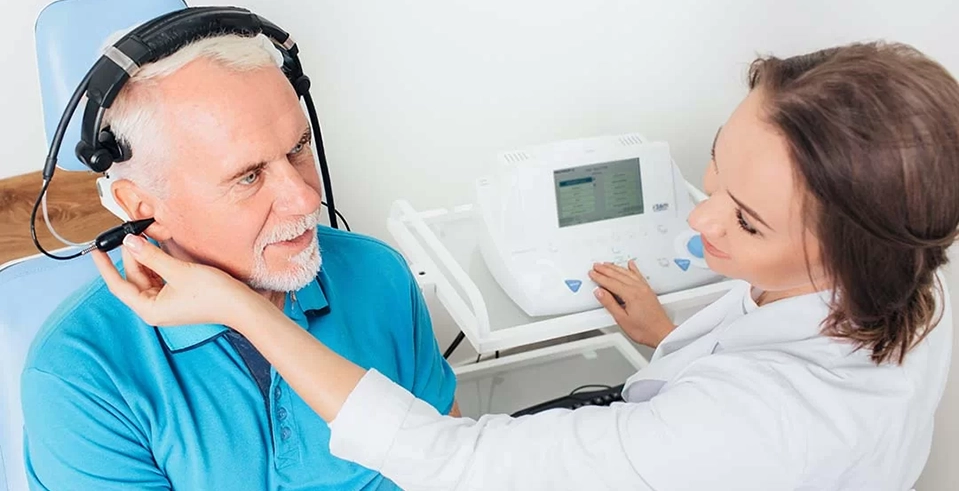Does Medicare Advantage Cover Hearing Aids and Hearing Tests?
Oct 18, 2022

How to Understand Your Coverage?
Hearing problems are common for people 65 years and older and advance as they age. For those on Medicare, hearing care coverage is a viable concern. When it comes to Medicare, hearing care has extremely restrictive coverage. Some Medicare plans do not cover them at all. There are supplemental plans that cover all or a portion of these services.
To know if your specific Medicare plan covers the cost of a hearing test or a hearing aid requires understanding your coverage. Supplemental plans available include:
- Medicare Part A
- Medicare Part B
- Medicare Part C
Some services cover hospice care and prescriptions. This article will not address the coverage for these plans. You can read more about them on the plan comparison chart on the Medicare website.
To learn more about whether your Medicare healthcare plan covers hearing care, this article will break down this information for you.
Does Medicare Cover Hearing Tests?
According to the Medicare website, “Medicare doesn’t cover hearing exams, hearing aids, or exams for fitting hearing aids.” However, there are circumstances in which Medicare will cover some costs of a hearing exam.
If your primary care physician (PCP) or one of your other doctors recommends an exam, Medicare will cover the cost. It will require this referral for Medicare to pay for your hearing test.
Medicare Part B plans cover diagnostic exams and balance exams if one of your healthcare providers determines one is necessary. If one of your doctors determines you need medical treatment for issues unrelated to general hearing loss, they will order an exam.
For example, your doctor will refer you for a hearing test if you sustain injury to your head or experience an illness that affects your hearing. Although, you will have to pay 20% of the Medicare-approved costs.
Does Medicare Cover Hearing Aids?
No. Original Medicare plans do not cover the costs of hearing aids. According to the Medicare website, “Medicare doesn’t cover hearing aids or exams for fitting hearing aids. You pay 100% for hearing aids and exams.”
If you enroll in one of the supplemental plans, you may qualify for additional coverage for hearing care. These plans are known as Medigap, and cover vision, dental, and hearing care for some services. You will need to contact the plan provider for specific information about what your supplemental plan covers.
Alternatives to Medicare for Hearing Test and Hearing Aid Coverage
Are you one of the more than 62 million Americans enrolled in Medicare with questions about what alternative to Medicare will cover your hearing care needs? Here are three that may help you with the costs associated with hearing care:
1. Medicaid
Medicaid is a federally funded program in the United States for people who need help with their healthcare costs and with limited resources and income. There are dual health plans for individuals with Medicaid and Medicare. It can offer additional coverage for things like:
- Medical treatments
- Prescriptions
- Exams
- Medically prescribed devices (like hearing aids)
Depending on your age, financial circumstances, and the state you reside in, you may be able to receive Medicaid coverage for hearing care and hearing aids. There are resources available that break down this coverage based on the state where you live.
2. Medicare Advantage Plans
Known as Medicare Part C, this plan covers more than other Medicare plans do. You may receive dental, vision, and hearing care under Medicare Advantage Plans. You can also receive coverage on fitness and over-the-counter (OTC) medications.
You can enroll in this plan at extremely affordable monthly premiums, depending on the area where you live. Your all-inclusive health plan may offer:
- $0 (or low) plan premiums (subject to your state of residence)
- $0 copay for PCP visits
- $0 deductible on prescription medications
- HMO plans do not require referrals
- Additional OTC benefits
- Additional medical benefits (contact your plan provider for details)
3. Hearing Loss Association of America (HLAA)
In 1979, Howard E. Stone founded HLAA. This organization is the leading consumer advocacy organization for people with hearing loss.
The organization assists consumers with the costs associated with hearing care. The means they provide coverage is different for everyone, based on their personal circumstances.
Working with government officials, the HLAA strives to improve healthcare coverage for those with hearing care needs. Their goal is that every Medicare recipient will someday have complete hearing care coverage.
Contact them to find out what services they offer if you need assistance in anything relating to your hearing loss.
From information to education to support and advocacy, the HLAA dedicates itself to hearing loss patients who need additional help with their condition.
Understanding Your Medicare Coverage
Many people on Medicare live on fixed incomes. They need to understand what plans they qualify for, their plan’s coverage, and what will be an out-of-pocket expense for medical care.
Hearing care is one of the treatments that Medicare doesn’t generally cover. Yet, if you know what alternatives you can take to get an exam and low-cost hearing aids, you won’t have to worry about getting the care you need.


